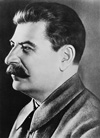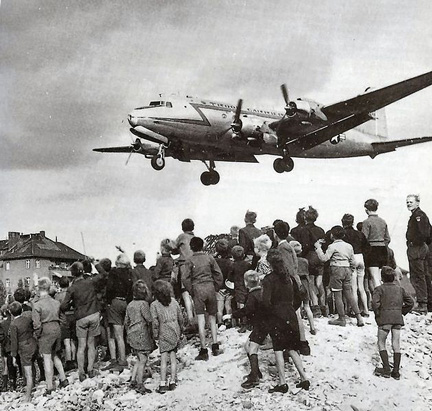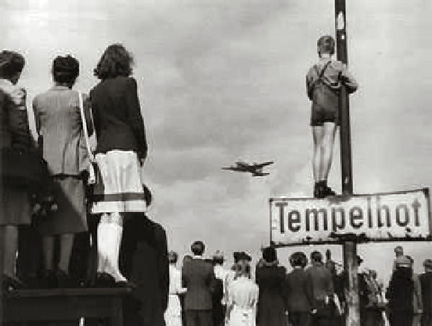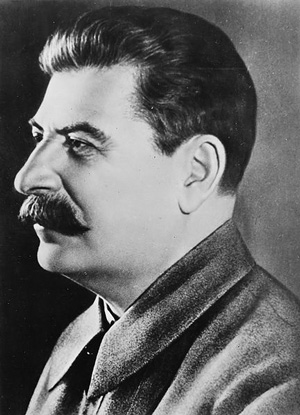|
Following successful completion of this lesson, students will be able to:
|
| Berlin Blockade | |||
|
|||
| Berlin Blockade. United States Air Force Historical Research Agency. This image is in the public domain. |
|||
| Berliners watching a C-54 land at Tempelhof Airport. |
Overview
Just as one war ended, another, but vastly different war began. The Cold War, as it is called, challenged American thinking and brought the world into a new age of global warfare. In the matter of a few short years, the world was forced to take sides in the East vs. West conflict.
The origins of the Cold War can be traced to events that occurred following the fall of Germany in 1945. As dictated by the Yalta conference, European countries were to hold free elections and Germany was to be divided into four zones of occupation. In reality, Stalin refused to hold the mandated free elections in territory his Red Army controlled. Instead, communist governments were installed leading to increased Western fears that communism would soon spread across the globe. A policy of "containment" was soon implemented to "contain" communism where it currently existed and to prevent its further spread elsewhere.
In 1948, Stalin angered Western democratic nations once again when he imposed a blockade on West Berlin. Though located in Soviet controlled East Germany, West Berlin was controlled by the Western democratic allies. The ensuing blockade cut off necessary supplies to the area and forced the Western allies to defend the territory or risk Soviet takeover. In the end, the "Berlin airlift" was activated and much needed supplies reached the West Berliners. Collectively, these two events further alienated the Western democratic nations from their former Soviet allies propelling the groups towards war.
| Germans watching supply planes during the Berlin Airlift. |
| Joseph Stalin | |||
 |
|
||
 |
|||
 |
|||
 |
|||
| Joseph Stalin. Library of Congress. Reproduction Number: LC-USW33-019081-C. This image is in the public domain. |
|||
| Soviet leader - Joseph Stalin |


